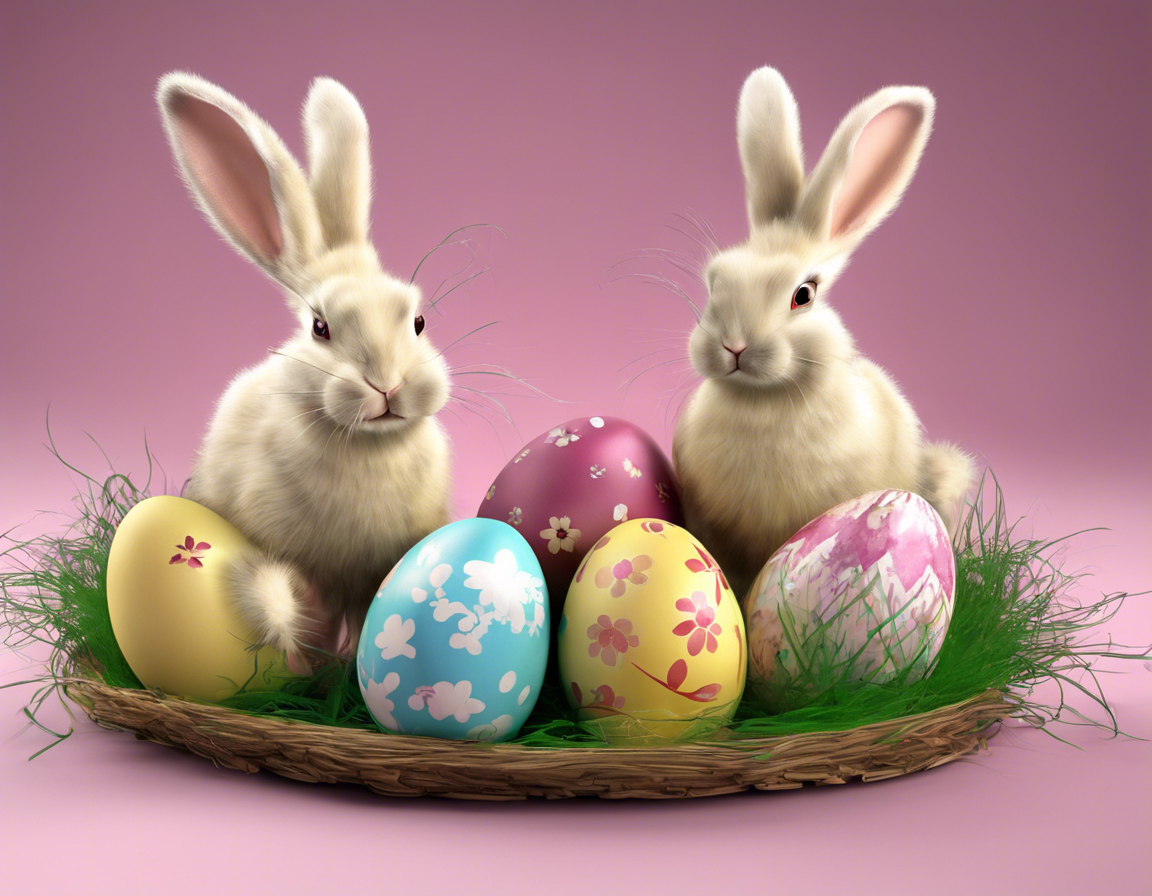Easter 2023: Celebrate the Joy!
- 246 Views
- Yash
- May 29, 2024
- Uncategorized
As we approach Easter 2023, a time of spiritual significance and celebration for Christians around the world, it is essential to reflect on the joy and meaning of this holiday. Beyond the Easter eggs and bunny rabbits, Easter is a time to commemorate the resurrection of Jesus Christ, a central event in the Christian faith. In this blog post, we will delve into the history, traditions, and significance of Easter, as well as explore ways to celebrate this joyous occasion.
History of Easter
Easter, also known as Resurrection Sunday, is the oldest and most important Christian festival. It commemorates the resurrection of Jesus Christ from the dead, as described in the New Testament of the Bible. The resurrection is a core belief of Christianity, symbolizing victory over sin and death. The exact origins of the word “Easter” are uncertain, but it is believed to be derived from Eostre, a Germanic goddess associated with spring and fertility.
The date of Easter varies each year, typically falling on the first Sunday after the first full moon following the vernal equinox. This places Easter between March 22 and April 25. The Easter season begins on Ash Wednesday, marking the start of Lent, a period of reflection and preparation for Easter. Holy Week, which includes Palm Sunday, Maundy Thursday, Good Friday, and Holy Saturday, leads up to Easter Sunday.
Traditions and Symbols
Easter is a time of joyous celebration for Christians, marked by various traditions and symbols. Some of the most common include:
1. Easter Eggs
- Symbolism: Eggs represent new life and the resurrection of Jesus.
- Tradition: Decorating eggs and egg hunts are popular Easter activities.
2. Easter Bunny
- Symbolism: The Easter Bunny is a symbol of fertility and new life.
- Tradition: Children are told that the Easter Bunny brings baskets of treats.
3. Lilies
- Symbolism: Lilies symbolize purity, hope, and the resurrection.
- Tradition: Churches and homes are often adorned with lilies during Easter.
4. Cross
- Symbolism: The cross represents the crucifixion and resurrection of Jesus.
- Tradition: Many churches display crosses, and some communities hold cross processions.
How to Celebrate Easter
There are many ways to celebrate Easter and honor the religious significance of the holiday. Whether you attend church services, spend time with family and friends, or participate in traditional Easter activities, the focus is on joy, renewal, and reflection. Here are some ideas for celebrating Easter:
1. Attend Church Services
- Join a church service: Attend a church service to commemorate the resurrection of Jesus.
- Participate in Easter rituals: Take part in rituals such as the lighting of the Paschal candle or the singing of hymns.
2. Host a Easter Brunch or Dinner
- Gather with loved ones: Invite family and friends for a special Easter meal.
- Share the message of Easter: Take time to reflect on the significance of Easter with those close to you.
3. Easter Egg Hunt
- Organize a hunt: Hide eggs around your home or yard for children to find.
- Include symbolism: Share the symbolism of Easter eggs with children as they hunt.
4. Give to Others
- Practice charity: Donate to those in need or volunteer your time.
- Spread joy: Share the message of Easter by spreading kindness and compassion.
5. Reflect and Renew
- Take time for reflection: Use the Easter season as a time for personal reflection and spiritual growth.
- Embrace renewal: Embrace the themes of rebirth and renewal that Easter represents.
Frequently Asked Questions (FAQs)
1. What is the significance of the Easter Bunny?
The Easter Bunny is a symbol of fertility and new life, representing the arrival of spring and the renewal of nature. The tradition of the Easter Bunny bringing treats and gifts dates back to German immigrants who settled in Pennsylvania in the 1700s.
2. How are Easter eggs connected to the holiday?
Easter eggs symbolize new life and the resurrection of Jesus. The custom of decorating eggs dates back to ancient civilizations and is a widespread Easter tradition. Christians adopted the practice, using eggs as a symbol of the empty tomb of Jesus.
3. Why do Christians celebrate Easter?
Christians celebrate Easter to commemorate the resurrection of Jesus Christ from the dead. The resurrection is a central event in Christian theology, symbolizing victory over sin and death. Easter is a time of joy, hope, and renewal for believers.
4. What is the significance of the cross on Easter?
The cross is a powerful symbol of the crucifixion and resurrection of Jesus. Christians view the cross as a representation of Jesus’ sacrifice and the ultimate victory over sin and death. The cross is a central symbol of the Christian faith and an important emblem of Easter.
5. How can I celebrate Easter in a meaningful way?
There are many ways to celebrate Easter in a meaningful way, such as attending church services, spending time with loved ones, participating in Easter traditions, and reflecting on the spiritual significance of the holiday. Connecting with the themes of rebirth, renewal, and hope can make your Easter celebration more meaningful.
In conclusion, Easter is a time of celebration, reflection, and renewal for Christians worldwide. By understanding the history, traditions, and significance of Easter, we can fully appreciate the joy and meaning of this holiday. Whether you attend church services, share a meal with loved ones, or participate in Easter activities, may your Easter 2023 be a time of spiritual growth and happiness.
His love for reading is one of the many things that make him such a well-rounded individual. He's worked as both an freelancer and with Business Today before joining our team, but his addiction to self help books isn't something you can put into words - it just shows how much time he spends thinking about what kindles your soul!




